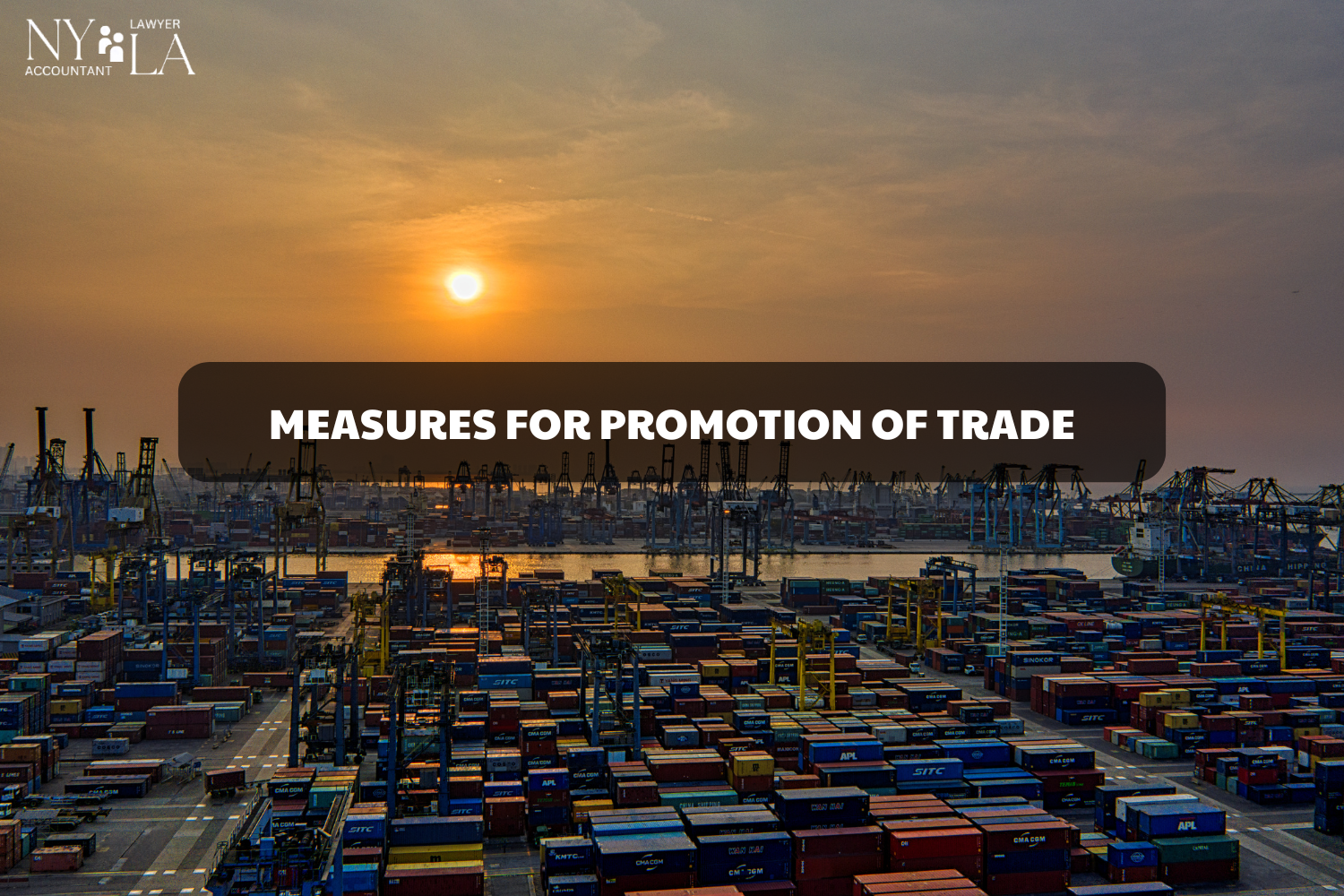Legal Basis: Enforcement Decree of the Foreign Trade Act
Summary
- 1. Creating a Competitive Export Environment
- 2. Enhancing Foreign Exchange Earnings
- 3. Supporting Balanced and Cooperative Trade
- 4. Private Sector and Industrial Support
- 5. Digitalization of Trade Systems
- 6. Assisting Overseas Market Entry
- 7. Continuous Policy Adaptation and Monitoring
- 8. Conclusion
- 9. About NYLA – Korean Legal Office
1. Creating a Competitive Export Environment
One of the core pillars of trade promotion is establishing an environment that enhances the competitiveness of the export industry. This goes beyond offering tax incentives—it includes strategic investments in infrastructure, logistics, and advanced manufacturing technologies. A modern trade promotion strategy supports access to global markets by improving port capacity, streamlining customs processes, and facilitating public-private partnerships for global competitiveness.
The Ministry of Trade, Industry and Energy plays a key role in identifying industries with high export potential and allocating resources accordingly. Long-term trade promotion cannot succeed without addressing supply chain resilience, reducing bottlenecks, and ensuring that exporters have access to the infrastructure they need to scale globally.
2. Enhancing Foreign Exchange Earnings
A robust trade promotion policy must prioritize foreign exchange stability and sustainable export growth. This means increasing the value-added component of exports while reducing reliance on imported raw materials. By promoting the use of domestically manufactured components and technology in export goods, governments can strengthen domestic industries and increase the profitability of international trade.
This strategy is vital not only for boosting the net foreign exchange earnings but also for reinforcing industrial independence. In an increasingly unpredictable global economy, self-sufficiency in key industrial inputs is a strategic advantage.
3. Supporting Balanced and Cooperative Trade
Trade promotion should not be one-sided. While increasing exports is a key goal, fostering balanced trade through coordinated imports also helps stabilize economic relations. Trade coordination between regions, sectors, and partners enables a holistic development approach. It opens doors to bilateral agreements and strategic partnerships that benefit all parties involved.
In this context, government policies should encourage interconnection between exports and imports, ensuring that trade does not skew excessively toward either direction. Promoting balance and mutual growth is crucial for sustainable trade ecosystems and diplomatic relationships.

4. Private Sector and Industrial Support
Effective trade promotion policies recognize the essential role of the private sector. Governments must provide comprehensive support for businesses—especially SMEs (Small and Medium Enterprises)—through financial incentives, tax relief for trade-related infrastructure, market intelligence services, and industrial cooperation frameworks.
Moreover, policy makers should focus on reducing bureaucratic barriers and streamlining regulatory processes, allowing companies to focus on core commercial activities. An agile and responsive regulatory environment helps businesses act quickly in competitive international markets, making trade promotion efforts more impactful.
5. Digitalization of Trade Systems
In today’s interconnected economy, digital transformation is central to any modern trade promotion agenda. Establishing platforms that automate and streamline trade-related affairs reduces administrative friction and enhances transparency. These platforms allow for real-time data tracking, smoother customs clearance, and more efficient cross-border transactions.
Encouraging both public institutions and private enterprises to adopt such platforms creates a tech-driven ecosystem that promotes operational excellence. In the age of digital commerce, traditional paperwork-based processes are no longer sustainable for high-volume, fast-paced trade environments.
6. Assisting Overseas Market Entry
For many domestic companies, entering foreign markets is a daunting task. Trade promotion should actively assist these businesses by offering tailored support in navigating regulatory landscapes, cultural differences, and logistical challenges. This can include grants, advisory services, and legal support in international transactions.
Conducting regular surveys and stakeholder consultations helps governments understand real-time challenges exporters face abroad. With this information, policy makers can develop adaptive and practical solutions that truly address business needs, making overseas expansion smoother and more successful.
7. Continuous Policy Adaptation and Monitoring
A dynamic global economy requires trade promotion policies to be agile and forward-thinking. Governments must regularly assess the effectiveness of current initiatives and remain open to feedback from businesses and international partners. This includes reviewing the outcomes of financial incentives, digital platforms, and industrial support programs.
Creating task forces, conducting impact assessments, and staying aligned with international trade developments allows for continuous improvement. Trade promotion is not a static concept; it evolves with global conditions, technological change, and market dynamics.
8. Conclusion
Trade promotion is a multifaceted effort that encompasses infrastructure investment, industrial strategy, digital innovation, public-private cooperation, and international diplomacy. When executed effectively, it fuels sustainable economic growth, strengthens global competitiveness, and supports local industries.
As global trade becomes increasingly complex, governments must remain proactive, adaptable, and collaborative. With the right frameworks, incentives, and digital infrastructure, nations can unlock their full trade potential and build resilient economic futures.
9. About NYLA – Korean Legal Office

■ NYLA – Your Trusted Legal Partner in Korea
At NYLA, we understand that the success of foreign businesses in Korea requires not only a solid business strategy but also reliable legal support. With a team of experienced Korean attorneys and legal professionals, NYLA provides tailored legal services for companies, investors, and individuals operating or planning to establish a presence in Korea.
We support our clients throughout the entire business journey with comprehensive services, including:
- Legal consultation on company establishment, taxation, and immigration;
- Advice on commercial real estate, franchising, and product distribution;
- Support in human resources, marketing, and business strategy.
In addition to legal advisory, NYLA also represents clients in civil litigation cases related to business, labor, marriage, family, and inheritance to ensure their rights and interests are fully protected.
■ Contact NYLA

If you’re a foreign business or individual looking for a reliable legal partner in Korea, NYLA is here to help. We are committed to delivering effective, practical, and personalized legal solutions for every client.
With a proven track record of assisting hundreds of international clients, our team is equipped to help you navigate complex legal challenges—whether it’s commercial disputes, contract issues, or foreign investment guidance.
Don’t let legal matters hold you back. Let NYLA be your trusted guide in the Korean market.
■ Get in touch with NYLA for expert legal support
| Website: https://nylakoreanlegal.com/
FB: https://www.facebook.com/nyla.koreanlegal Tiktok: https://www.tiktok.com/@nylakoreanlegal Youtube: https://www.youtube.com/@NYLA-xd8qx Email: info.NYLAkoreanlegal@gmail.com SĐT: +82 10-3415-7859 |
 |






















































